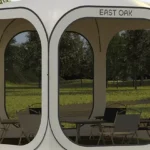The United States was founded as a republic, not a pure democracy. This distinction emphasizes a government system where the majority is restrained by a constitution or charter that protects minority rights. The founding fathers, wary of the potential for tyranny in a direct democracy, established a republic to ensure that individual liberty and minority rights are safeguarded against the majority's rule.
The Balance of Power
In a republic like the United States, elected representatives make decisions on behalf of the people, but their powers are limited by the Constitution. This system prevents any single group or majority from having unchecked power, thereby protecting individual rights and maintaining a balance between different branches of government.
Critique of Democracy
While democracy emphasizes majority rule, it often overlooks the rights of the minority, leading to concerns about potential mob rule and the suppression of individual rights. The lack of inherent safeguards in a pure democracy can lead to the erosion of liberties if the majority decides to infringe upon the rights of the minority.
The Vulnerability of Democracy to Populism and Majoritarianism
Democracy, in its purest form, is susceptible to the whims of populism and the potential tyranny of majoritarianism. The direct rule of the majority, a defining feature of pure democracy, often overlooks the nuanced needs and rights of minority groups, leading to decisions that favor the majority's interests at the expense of the vulnerable.

This vulnerability is particularly evident in situations where populist movements gain momentum, often fueled by charismatic leadership and appealing to the majority's emotions rather than reasoned debate and the common good. Such environments can lead to hasty decisions, undermining long-term stability and the protection of fundamental rights.
Democracy's Shortcomings in Ensuring Equitable Representation
Moreover, democracy can struggle with ensuring equitable representation for all societal segments, particularly in diverse societies. In a system where majority rule is paramount, minority voices can be drowned out, and their concerns may not be adequately addressed or respected. This lack of representation can lead to feelings of disenfranchisement and alienation among minority populations, eroding the social fabric and undermining the legitimacy of democratic institutions.
The challenge of creating a truly inclusive democracy that respects and protects the rights of all individuals, regardless of their number or influence, remains a significant hurdle, highlighting the inherent limitations of democracy in safeguarding individual and minority rights.
Keeping Politicians in Check
In a republic, politicians are kept in check through a combination of constitutional limitations, checks and balances among the branches of government, and regular elections. This framework ensures that no single entity or group can gain excessive power, preserving the republic's integrity and preventing authoritarian rule.
The Importance of Constitutional Safeguards
The constitutional framework of a republic is crucial for protecting individual rights and maintaining social order. It provides a legal barrier against the potential excesses of majority rule, ensuring that the government cannot infringe upon the fundamental rights and freedoms of its citizens.
The Role of the Judiciary in a Republic
In a republic, the judiciary plays a pivotal role in maintaining the balance of power and ensuring that the constitution is upheld. Courts have the authority to review legislation and executive actions to determine their constitutionality. This judicial review process is a cornerstone of the republic system, acting as a safeguard against potential overreach by the legislative or executive branches.
For instance, landmark Supreme Court decisions such as Brown v. Board of Education and Loving v. Virginia demonstrate the judiciary's role in rectifying injustices and enforcing constitutional rights, often against the majority's preferences. The judiciary's ability to check the other branches ensures that individual rights and liberties remain protected, emphasizing the principle that the law stands above the whims of the majority.
The Limitations of Majority Rule in Protecting Rights
While a democracy focuses on majority rule, a republic recognizes the potential dangers of this system in compromising individual rights. The framers of the U.S. Constitution understood that without checks and balances, a majority could impose its will on the minority, leading to potential tyranny.
This understanding led to the establishment of a constitutional framework that limits the powers of the majority, ensuring that individual freedoms are not trampled by collective decisions. In a republic, the protection of rights does not fluctuate with majority opinion; instead, it is anchored in constitutional principles that provide stability and fairness, reflecting a deep respect for individual autonomy and the inherent dignity of each person.
This structured approach ensures that the rights of the few are not sacrificed for the convenience or demands of the many, illustrating the republic's commitment to justice and equality for all citizens.

Carl Riedel is an experienced writer and Open Source Intelligence (OSINT) specialist, known for insightful articles that illuminate underreported issues. Passionate about free speech, he expertly transforms public data into compelling narratives, influencing public discourse.













